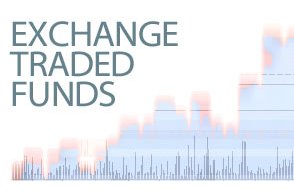What Does Exchange-Traded Fund Mean?
Exchange Traded Funds (ETF) are investment funds that trade on a stock exchange tracking the performance of an index. The index can include stocks, bonds and commodities. ETFs are good investment because they are cheap, tax efficient and because of their stock like features. In recent years Exchange Traded Funds have grown in popularity as an investment method, enabling the investors to expand their portfolios while maintaining flexibility in trading similar to stock. As an investor in ETFs, you get the diversification of an index fund and also you will be able to sell short, buy on margin and procure as little as one share.
To create an new ETF, a registered broker buys the basket (group of securities created for the purpose of concurrent buying and selling) of securities underlying the index, and exchange them with a company that establishes and administers an ETF, for a newly created ETF shares. The broker then breaks up creation units (large blocks of thousands ETF shares which can be exchanged in-kind with baskets of underlying securities when an initial ETF is established) into single shares which trade on a stock exchange, and therefore investors can buy them. The reverse process happens when the broker cashes in a creation unit on the open market, to make the quantity needed for a creation unit. After making a creation unit, the broker then turns the shares over to the company administering the ETF in exchange for individual securities underlying the ETFs.
There are several types of ETFs that a person can invest in. Some of them include: index ETFs, commodity ETFs, bond ETFs, currency ETFs, and leverage ETFs. Index ETFs hold securities and try to imitate the performance of a stock market index. To do this, index ETFs seeks to track the performance of an index by holding in its portfolio either as imitation of the trade index or as representative sample of the securities.
Commodity ETFs usually invest in precious metals and future contacts. This type of ETFs trade just like shares, are resourceful and simple and provide exposure to an ever-increasing range of commodities and commodity indices such as metals and agriculture.
Bond ETFs are ETFs investing in bonds. Mostly they flourish in economic recessions since investors pull their money out of stock market into bonds. Bond ETFs have an advantage of getting practical trading commissions.
Currency ETFs are total return products, where an investor accesses the Forex spot change, local institutional interests rates and a collateral yield.
Leverage ETFs are special type of Exchange Trusted Funds, that try to achieve returns which are more sensitive to market movements than other types of ETFs. Mostly Leverage ETFs are marketed as bull or bear funds.
There are many advantages of Exchange Traded Funds. First, an ETF can create exposure to a group of equities, styles, or market segments. In comparison to a stock, an ETF can track broader range of stocks or try to mimic the returns of a country or many countries. Secondly, well managed ETFs have lower expense ratios compared to other managed funds like mutual fund, which have high expense ratio due to costs like management costs and shareholder account expenses at the fund level. Another advantage of ETFs is that their dividends are reinvested back immediately, therefore avoiding dividend drag. Also ETFs are more tax efficient than mutual funds since most of the tax on capital gains is paid on sale and completely up to an investor.
Exchange traded Funds are flexible and are traded on major stock exchanges in the world, so when an investor buys or sells an ETF, he or she does that at the current share price in the market. ETFs are also intended to trade close to their underlying net assets value, thereby, providing a great assurance that their prices will reflect the value of underlying assets. Also in comparison to mutual funds, ETFs perform better and are efficient way to know the index performance and have a lower annual management fee.
It should be noted that, in some countries ETFs may be limited to big companies only, therefore, limiting investors to large capital stocks due to a narrow group of stocks in the market index. Also, the cost of investing in ETFs may be higher compared to investing in one particular stock.
Please note that currently there are no Exchange Traded Funds (ETFs) available in Sri Lanka (Colombo Stock Exchange) but it would be available in near future as SEC is working on the ETFs and Unit Trust regulatory framework. Please refer to The Gazette of the Democratic Socialist Republic of Sri Lanka No. 1723/4 of Monday September 12, 2011 on Unit Trust Code including Exchange Traded Funds.

